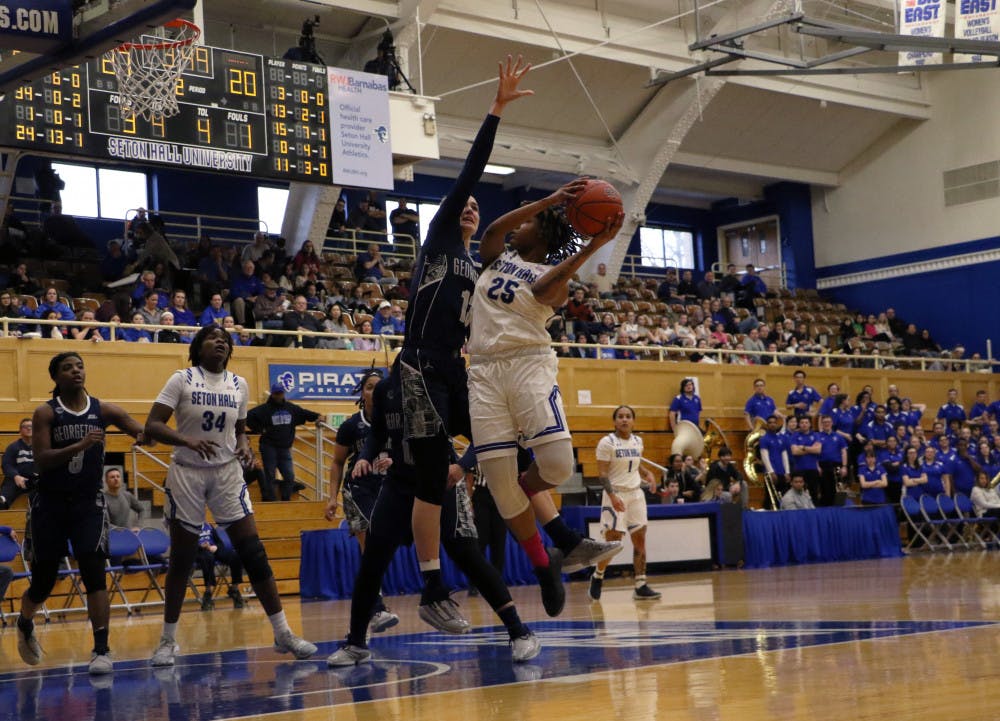Two Seton Hall students attended the National Science Foundation in Chicago because of a research grant given to professor Martin S. Edwards, Ph.D., a professor of the Whitehead School of Diplomacy and International Relations.
Junior Cassie Denbow and senior Yasmin Elkarrimy worked as research assistants for Edwards over the summer, where they studied and built a model of transparent countries.
"Basically, we looked at public information notices, PIN [Public Information Notices], and researched countries that filed for loans through the IMF [International Monetary Fund]," Elkarrimy said. "The whole purpose of the study was to understand if filing a PIN made a difference, which we discovered it did."
Elkarrimy and Denbow were selected as research assistants through a job listing on the Seton Hall website. They were chosen by Edwards based on their interviews and qualifications.
"It's been a real honor to be able to hire exceptional undergraduates, put them to work on a federally-funded grant project and watch them present our findings," Edwards said.
According to Edwards, the students presented their research at 16th Annual Petersheim Academic Exposition on Wednesday as well as to the Whitehead School Board of Overseers on Friday.
"A sidelight of the trip for me was to talk with prospective SHU students, and you'd be amazed how they react when they realized that undergrads are presenting on panels with second year grad students, assistant professors, and tenured faculty," Edwards said.
Elkarrimy said the trip was an incredible experience.
"I gained a lot from it," Elkarrimy said. "I'm really happy Edwards chose me to do it."
Elkarrimy said that she and Denbow learned a lot about the Article 4 Consultations through research. According to their findings, they found that countries that submitted a PIN earlier actually benefitted more.
Countries like Turkey and Brazil, both of which have flourishing economies, came up on a positive note through the research. Part of the presentation was to present the nine model figure the students came up with.
"We found that countries who submitted a PIN would have a lower spread on their interest rate," Elkarrimy said. "Countries who go to IMF have to go into article 4 consultations, which means they have to build a staff report for submission."
"Whitehead students can compete with anyone," Edwards said. "It's nice to be able to demonstrate that."
Edwards said that the recent travels have been important to him, but also important to the field of study.
"Overall, these trips have been a real career highlight," he said. "Undergraduate research happens a lot in the natural sciences, but less so in the social sciences."
Rawan Eewshah can be reached at rawan.eewshah@student.shu. edu.





